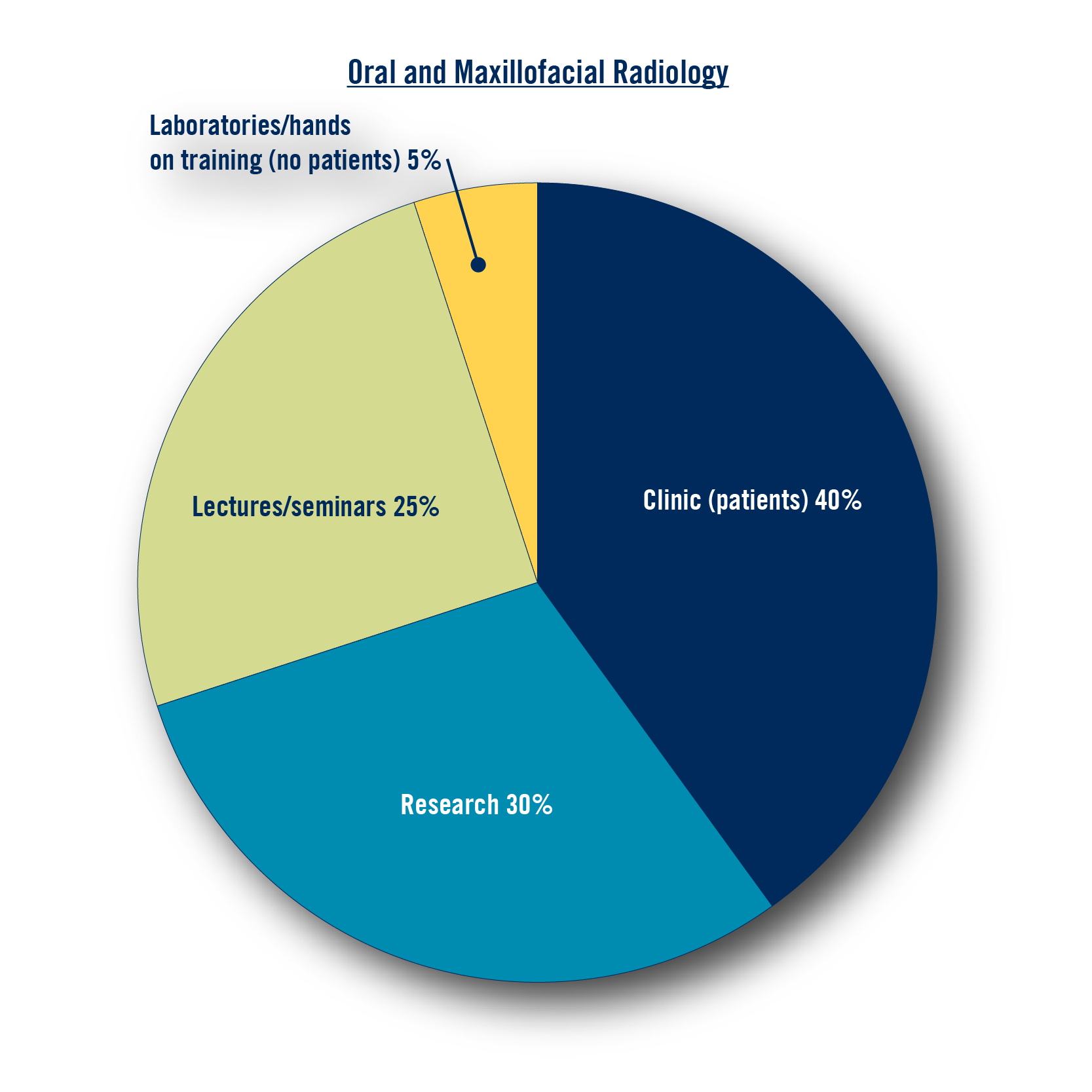Overview
This is part of our graduate education: MSc or PhD program with specialist clinical training.
| Program director |
Dr. Susanne Perschbacher |
| Length of program |
MSc: 3 years PhD: 7 years |
| Important dates |
Application window: April 1 – September 1 Interview notifications: mid to late October Program start: First week of August |
| Number of spaces available across MSc and PhD | 2 |
| Main teaching team |
Dr. Grace Bradley |
The design and analysis of imaging examinations is vital when interpreting abnormalities of the oral and maxillofacial region.
Working with patients in the Oral and Maxillofacial Radiology Clinic in the Faculty of Dentistry, including the Special Procedures Clinic, you will gain extensive experience in making and interpreting:
- intra- and extra-oral imaging
- sialography
- cone-beam computed tomography.
You will be exposed to multi-detector computed tomography and magnetic resonance imaging through rotations at the Head and Neck Imaging Service at the Princess Margaret Hospital and the Neuroradiology Service at the Sunnybrook Health Sciences Centre.
You will participate in radiology rounds with medical radiology residents to learn about the use of advanced imaging in the interpretation of abnormalities of the head and neck.
Through didactic courses and seminars, you will learn how pathologic processes impact the appearances of diseases you will see on radiologic images.
You will also gain experience in:
- radiation biology and physics
- biostatistics and epidemiology
- temporomandibular disorders
- teaching undergraduate dental students.
How you will spend your time
(on average, may vary from year to year)

What this program enables you to do
The program is accredited by the Commission on Dental Accreditation of Canada and the Commission on Dental Accreditation in the United States through a reciprocal agreement.
Completion of this program will allow you to take the:
- National Dental Specialty Examination (the National Dental Examining Board of Canada)
- Fellowship Examination (Royal College of Dentists of Canada)
- Diplomate Examination (American Board of Oral and Maxillofacial Radiology)
How to apply
Follow the standard application process on How to become a specialist dentist.
If you are applying at PhD level
If you are applying for this program at the PhD level, you need to identify an area of research and contact a faculty member before you apply to determine if they are accepting PhD students for supervision.
- See the application process for Graduate studies without clinical training for tips on writing a research statement of interest.
- Search for Faculty members by name or research interests.